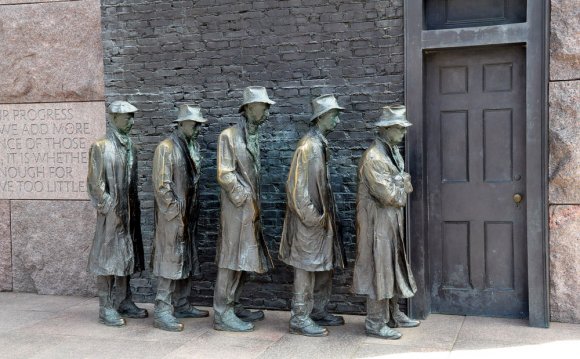
Great Depression
 Next year, 100 years will come from the beginning of the First World War and 85 years from the beginning of the Great Depression. The first world war, apart from the fall of the Rome Empire, was the greatest misfortune in the history of mankind. Great depression would not have happened if there was no war, and the effects of this decline in the economy were terrifying. There would be no depression, no Nazis. There would be no Nazis, there would be no World War II. Today, the economic legacy of these two catastrophes threatens our future. I'll explain why.
Next year, 100 years will come from the beginning of the First World War and 85 years from the beginning of the Great Depression. The first world war, apart from the fall of the Rome Empire, was the greatest misfortune in the history of mankind. Great depression would not have happened if there was no war, and the effects of this decline in the economy were terrifying. There would be no depression, no Nazis. There would be no Nazis, there would be no World War II. Today, the economic legacy of these two catastrophes threatens our future. I'll explain why.
The most important reason for the tremendous increase in the life expectancy and material achievements of the nineteenth century was the success and example of Great Britain, where there was more freedom than in any other great Power (justice to say that La Mansh protected Britain from the threat of attack, which forced the continental Powers to spend huge amounts on the permanent army and impose heavy taxes on it). Moreover, there was a strong and long tradition of the rule of law, especially with regard to property rights. As a result, Britain became the centre of innovation. Inventors and entrepreneurs were constantly experimenting in an attempt to create new ones that contributed to the prosperity of the Industrial Revolution. A few centuries before the formation of the ferry machine, England was able to make a technical breakthrough in the textile industry, the construction of ships and other human activities. For example, agricultural production by an English farmer was more than three times the production of his French contemporary.
Since the founding of the Bank of England in 1694, Britain has also moved towards the creation of financial institutions, instruments and practices that have stimulated economic progress. Thus, London has been able to finance the costly wars of the sixteenth century without imposing unbearable taxes and not bringing the country to a financial collapse such as that which has created the French Revolution. The cornerstone of this policy was the decision in 1717 to set a firm price of pounds relative to gold, which turned Pound sterling into world currency and London into a financial centre for the world that invested in foreign lands. The United States has benefited greatly from British capital inflows and has ultimately surpassed its former metropolitan level of freedom, enterprise size and individual achievements.








